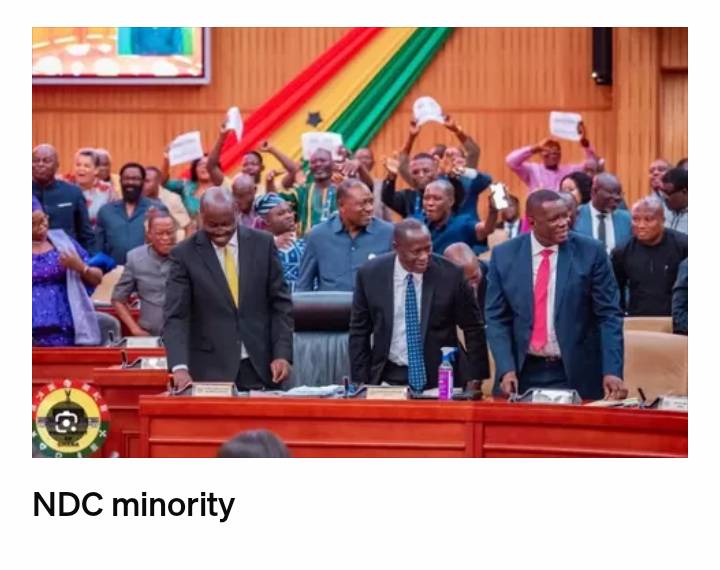The National Democratic Congress (NDC) parliamentary caucus has announced a boycott of parliamentary proceedings, following a recent Supreme Court decision that nullified Speaker Alban Bagbin's declaration of four vacant parliamentary seats. This move affects the balance of power in Parliament, thwarting the NDC’s attempt to gain a majority ahead of the upcoming December 7 elections.
Background of the Dispute
The controversy began when Speaker Bagbin declared four seats vacant, impacting NPP Members of Parliament Cynthia Mamle Morrison, Peter Yaw Kwakye Ackah, Kwadjo Asante, and Andrew Asiamah Amoako. Three of these MPs are running as independent candidates in the upcoming elections, while Amoako has rejoined the NPP. Bagbin's declaration had raised hopes for the NDC to leverage these vacancies and tilt the parliamentary balance in their favor. However, the Supreme Court, in a 5-2 ruling, overruled Bagbin's declaration, reinstating the MPs and preserving the NPP’s slim majority.
NDC's Response and Boycott Decision
In response to the ruling, Nii Lante Vanderpuye, NDC MP for Odododiodoo, stated that his party will abstain from parliamentary activities until after the elections. He expressed that the NDC caucus is prioritizing election preparations and will not engage in parliamentary proceedings in the interim.
They the NPP should not expect us in Parliament for the next three weeks. Our priority is the election, and we’ll return only after December 7, Vanderpuye stated in an interview on Accra’s Channel One TV.
This boycott signifies the NDC’s frustration over the ruling, as well as their focus on consolidating their election strategies. Vanderpuye stressed that the outcome of the election will determine the NDC's future stance in Parliament.
Majority Leader’s Response and Call for Unity
Majority Leader Alexander Afenyo-Markin expressed disappointment with the NDC’s decision to boycott Parliament and has suggested recalling Parliament to address critical issues. Afenyo-Markin urged a return to parliamentary duties, emphasizing that national interest should take precedence over political maneuvering.
However, the NDC insists that parliamentary numbers should define majority status, not the Supreme Court. Vanderpuye remarked that the NDC will determine its majority or minority position based on actual representation in the House, not court interventions or NPP assertions.
Broader Implications of the Boycott
The NDC's boycott raises concerns about the potential impact on parliamentary productivity, particularly as Parliament plays a crucial role in overseeing and deliberating national issues. The absence of the NDC caucus in legislative sessions could delay decisions on key matters and potentially heighten political tensions.
This latest standoff reflects the intense rivalry between the NDC and NPP as both parties prepare for the December 7 elections. The boycott adds another layer of complexity to an already heated political environment, underscoring the high stakes of the parliamentary he NDC has signaled that it is prepared to review its position after the election until then, their absence from Parliament underscores the ongoing political battle over control and influence within Ghana’s legislative body.
Source: Daily Guide Network, November 13, 2024




No comments yet
Be the first to share your thoughts!